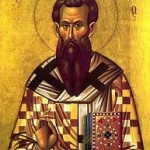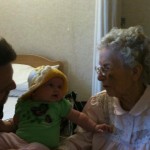10+ years ago I saw an incredibly attractive woman standing in the popcorn line at the movie theater. Four years later that same woman became my wife and six years after that she became the mother of our baby girl, Ruby.
Today is Valentine’s Day, yet I write this in a small hotel room on the border of Kansas and Nebraska as just two days ago Janny sat next to her Grandpa as he passed away. We once again live in the tension of life and death while embracing an Entangled Theology (see last weeks’ posts).
In the midst of the pain, I want to write why my wife is awesome. Our relationship has had lots of pain and lots of joy, so it just makes sense that (even amidst pain) I reflect on the joy you have brought me and so many others.
Janny, you are a wesome and here are the top 5 reasons why:
wesome and here are the top 5 reasons why:
1. You’re Hot
(forgive the Junior Higher in me, but I’m your husband and it’s Valentine’s Day…I can say that!)
2. You’re super quick witted and funny
As much as I like to think I’m the funny guy, we all know you are the one carrying the goods of quick witted humor in this relationship. Even when it might not be completely appropriate, you still throw it out there…and I love that.
3. You’re the best travel partner a man could ask for
Travel has been less of vacation and more of a pilgrimage in our relationship. It has shaped our worldview, given us the opportunity to see God’s Kingdom breaking through in contexts we would otherwise never imagine and allowed us to spend ridiculous amounts of time together. How many women would turn in their wardrobe and comfort in exchange for 1 backpack and no guarantees on where we would sleep the next night? I loved all of the 30ish countries we have wandered through, but most of all I loved wandering through them hand in hand with you (except Morocco where that wasn’t allowed!).
4. Family
I am humbled and honored by the value you put on family. From loving both of our children through joy and tears to caring selflessly for my grandma when she has been at her worst, you embody selfless love and commitment. Relational health among our families is in large part due to your leading me by example.
5. Lead the way in living out Jesus’ call on our lives
Setting aside financial and physical security to continually live into Jesus’ call on our lives is no easy task, yet it is one that you have willingly chosen to participate and raise our family within. For you, following Jesus is not simply a title, one-time decision or about saying the right things. Instead, you follow Jesus in all aspects of your life and invite others to do the same.
Bonus: You put up with me and keep me in line! Well, you try…
Cheers to my wife, Janny. You are freaking awesome. I’m looking forward to another 10+ years and another 10+ years after that.
With all that being said, will you be my Valentine?
P.S. Many of you who read this know Janny. Jump in and tell her why she is awesome!




